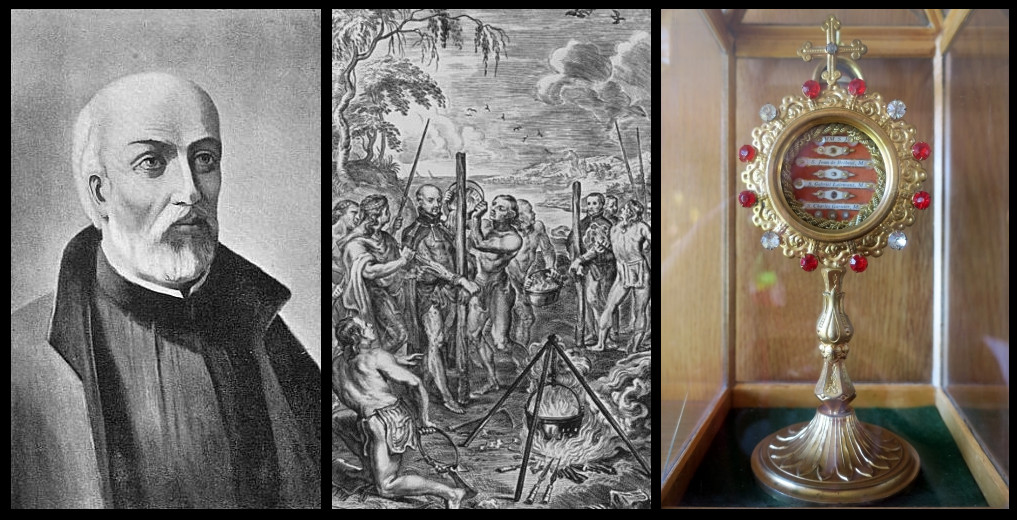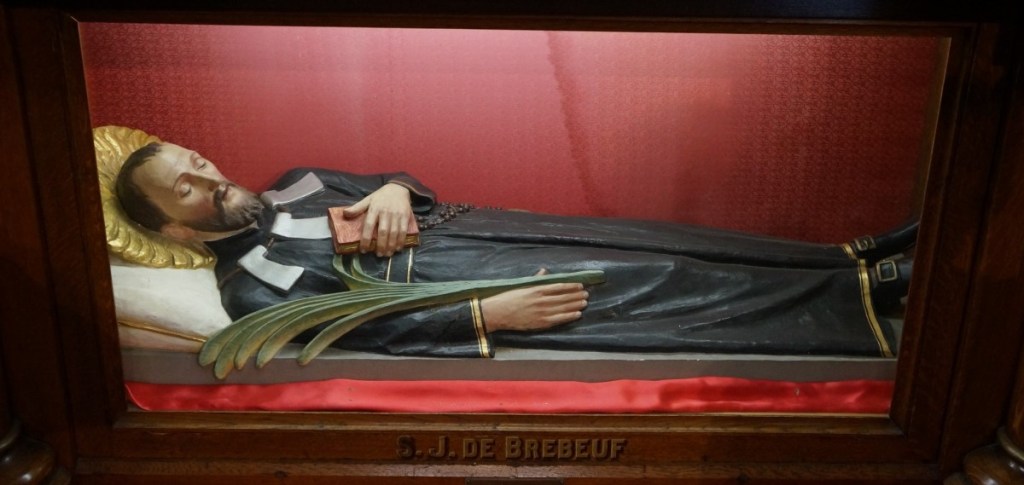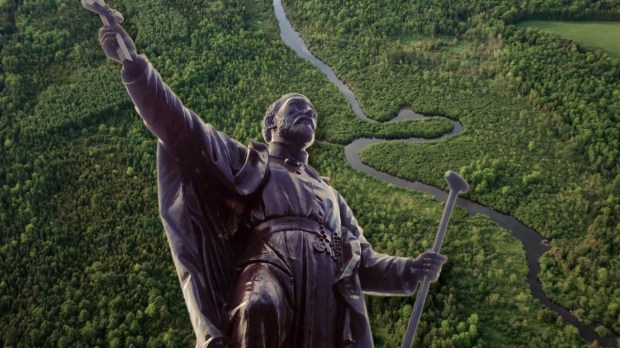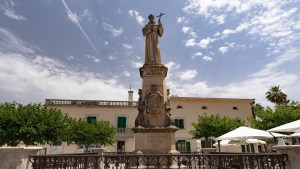Today, Jesuit priests and missionaries serve the Church in around 122 countries, preaching the foundational values of St Ignatius Loyola, founder of their Catholic order. In addition to preaching and administering the sacraments, the Jesuits have a strong commitment to education and missionary work.
They played a crucial role in spreading the Catholic faith in North America.
A young and gifted scholar
At only 24 years old, Jean de Brébeuf was already recognized as a talented scholar when he joined the Jesuit Order in the city of Rouen in northern France in 1617.
Since he had already completed his studies in humanities, Brébeuf was assigned to teach at the Jesuit Secondary School, a post he held for three years.
He was uniquely gifted in learning and teaching languages, which is perhaps why he volunteered and left France as a Jesuit missionary to New France (now Canada) in 1625.
Fr. Brébeuf’s first missionary journey
Fr. Jean Brébeuf was one of the first Jesuits to sail to New France and was the first apostle to contact the Huron Indian tribe, also known as the Wyandot people. In true Jesuit spirit, and with his special gifts, Brébeuf also became the first of his party to master the Huron language.
It required trust and mutual understanding for this French priest to live so closely with a people whose culture differed so greatly from his own. The missionary immersed himself in the Huron way of life. He even translated the Catholic catechism from French into Huron. Fr. Brébeuf also taught his fellow missionaries about the Huron and their language.
Due to the political situation, however — hostilities between the French and British — the acting Jesuit Superintendent in Quebec recalled Jean de Brébeuf from Huronia to Quebec and eventually back to France.
The French Jesuits had been ousted from Canada.

Return to Quebec and the Hurons
France regained New France in 1632, and Brébeuf was allowed to once again sail to Quebec, a land and people that he already knew well.
Jean de Brébeuf was happy to return to the Hurons. The tribe had always listened to his lessons with rapt attention, and frequently requested baptized.
The 800-mile journey from Three Rivers to Huronia was challenging for the missionary, however. He and his party had to travel the river in crowded, light bark canoes, paddling all day. At night, they slept on hard rock or the bare ground; it was far from pleasant.
Fr. Brébeuf and the other missionaries also had to put up with mosquitoes and a general lack of sanitation. The 30-day trip weakened the Catholic missionary, who suffered from the tuberculosis he had contracted in France in 1620.
But the warm welcome from his friends on arrival gave him much comfort.
“Bearing much fruit”
Finally back in Huronia, Fr. Brébeuf supervised the building of a cabin for the missionaries, a modest Indian-styled longhouse, 32 feet by 16 feet, named after St. Joseph. It served as the center of the Huron mission. The number of adult conversions and baptisms among children grew.
It seems that what held many Hurons back from fully committing to Catholicism were the Christian attitudes toward sexuality and marriage.
In a letter to Rome written on June 2, 1648, however, he said that “the work of the missionaries is now bearing much fruit.”
Disaster struck in the spring of 1649. A war party of armed Iroquois — bitter enemies of the Hurons and their competitors for the fur trade — attacked the unsuspecting village in the early morning hours of March 15-16.
The victorious Iroquois seized the Jesuit Brébeuf and his fellow priest Gabriel Lallemont. It marked the collapse of the mission to Huronia.

The martyrdom of Fr. Brébeuf and his companion
According to various records, the two missionaries suffered excruciating torments. The men were stripped naked, beaten, and had the nails stripped from their fingers. The attackers then slashed their bodies and thrust red hot hatchets into the open wounds.
Still, Fr. Jean de Brébeuf attempted to convert his tormentors. In response, his nose was cut off and a hot iron was forced down his throat to silence him.
Testimony of a friend
Fr. Paul Ragueneau, a missionary who served under Fr. Brébeuf and later chronicled his life, recounted the fortitude of his brother Jesuit:
He was always ready for the humblest and most painful duties. He always bore the heaviest burdens on canoe trips with the Hurons and paddled from morning till night, was the first in the water when there was a need, was the first to rise, to make the fire and cook, and the last to retire at night and only after he had attended to his prayers and devotion.
Rageneau also stated that in the 12 years he knew Brébeuf, amid many sufferings and personal mortifications, the priest always displayed remarkable self-control.
According to Ragueneau, Jean de Brébeuf was 56 years when he was martyred on March 16, 1649.
St. Jean de Brébeuf was canonized by the Vatican in 1930. He was later proclaimed a patron saint of Canada, along with St. Joseph, St. Anne, and his fellow Canadian martyrs.



